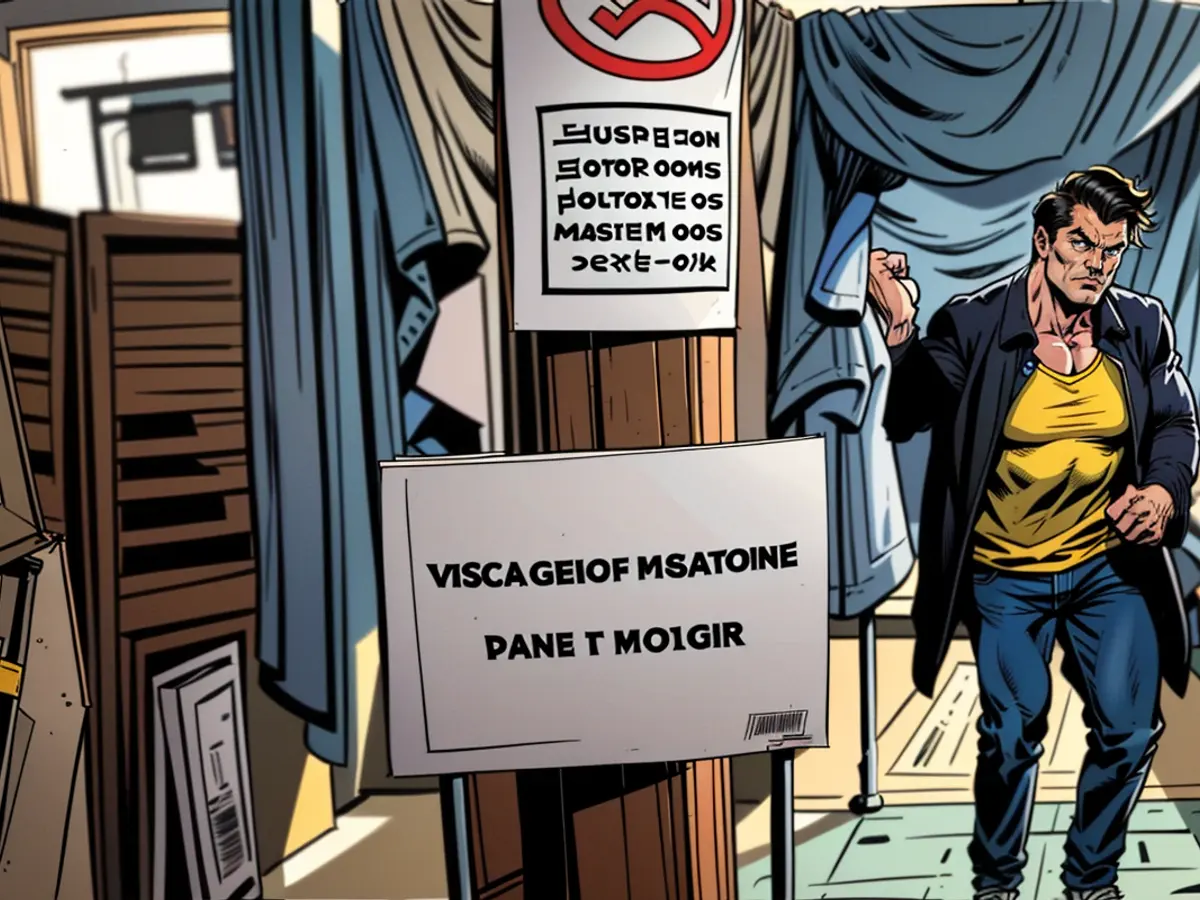High turnout in landmark parliamentary election in France
France's President Emmanuel Macron unexpectedly called for a new election following the poor showing of his government in the European elections in early June. His hope that the French would vote differently in a national election compared to the EU-wide ballot seems to be unconfirmed according to the polls. The right-wing Rassemblement National (RN) was leading in them with 34 to 37 percent of the votes.
"These are not simple elections, the results are very uncertain, the consequences could be significant for society," said the 38-year-old Julien Martin as he cast his vote in Bordeaux. The 40-year-old Roxane Lebrun said, "We have to keep fighting for what we believe in and what we want for France."
Several prominent politicians went to the polls in the morning. President Macron and his wife Brigitte cast their votes in the northern French town of Le Touquet. Jordan Bardella, the chairman of the favored RN in the polls, went to a polling station near Paris.
The unexpected election for the 577 seats in the French National Assembly could pave the way for the country's first right-wing populist government since World War II. It appears that the government coalition is likely to lose its relative majority in the parliamentary chamber.
In the polls, the right-wing RN even surpassed its result in the European elections and reached 34 to 37 percent of the votes. The left-green New People's Front coalition stood at 27.5 to 29 percent of the votes, while Macron's government was far behind with 20.6 to 21 percent.
According to some surveys, the RN even has a chance of obtaining an absolute majority in the National Assembly. To achieve this, the party would need to secure 289 of the 577 seats. Currently, the RN had only 88 parliamentarians.
If the right-wing populists obtain an absolute majority, Macron might be forced to enter into a politically binding marriage with them and make Bardella, the 28-year-old RN party leader, the Prime Minister. This, in turn, could pave the way for Marine Le Pen, the former RN leader, to become President in 2027.
Given the significance of the election, a very high voter turnout was anticipated beforehand. It could reach 67 percent and significantly exceed the 47.5 percent voter turnout in the first round of the parliamentary election in 2022. According to the Interior Ministry, 25.9 percent of eligible voters had exercised their right to vote by Sunday afternoon. For the election, over 2.6 million proxy votes had been issued on request - four times more than in a comparable period two years ago.
A high voter turnout could lead to several dozen candidates being elected in the first round. The question then arises as to how many candidates might withdraw before the second round on July 7 to prevent an RN candidate from winning.
A victory for the Right-wing populists in the parliamentary election would mark the biggest upheaval in younger French history. The party has softened some of its earlier radical positions - such as advocating for France's exit from the EU or the end of Franco-German arms projects. However, it has drawn up an Europe- and foreigner-hostile campaign program in the election, which shows significant conflict points with Macron's previous course.
- The upcoming parliamentary election in France, sparked by Emmanuel Macron's poor showing in the European elections, provides a significant opportunity for participation in shaping the country's future.
- Despite Macron's hopes, polls suggest that the right-wing Rassemblement National (RN) may maintain its strong performance in the national election, as evidenced by Jordan Bardella's lead.
- Parisian woman Roxane Lebrun emphasized the importance of voter participation, affirming, "We have to keep fighting for what we believe in and what we want for France."
- The RN's participation in the parliamentary election could lead to unprecedented changes in France, potentially resulting in its first right-wing populist government since World War II.
- If successful, RN leader Bardella might assume the role of Prime Minister, leading to potential political alliances between Macron and the RN or even paving the way for Marine Le Pen's presidency in 2027.
- In the lead-up to the parliamentary election, higher voter turnout is expected, which could significantly impact the outcome and potentially disqualify some candidates in the second round to prevent an RN win.







